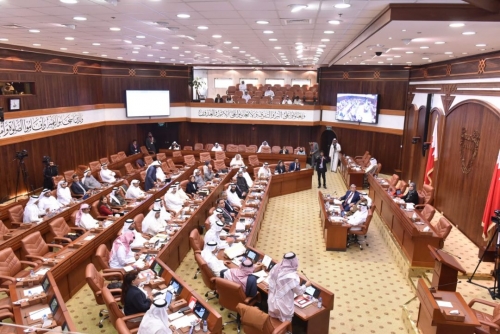Government Rejects Bill on Bonuses for State Entities and Companies in Bahrain
TDT | Manama
The Daily Tribune - www.newsofbahrain.com
Email: mail@newsofbahrain.com
The government has rejected a draft law proposed by MPs Ahmed Qarata and Abdulhakeem Al Shenu concerning annual bonuses for the chairmen and board members of government authorities and companies. The proposed bill, consisting of three articles, would have allowed bonuses to be paid if profits were achieved, as per the annual financial report, and approved by the Minister of Finance and National Economy. Conversely, it would have prohibited bonuses in cases of financial losses. The third article was procedural.
The government's rejection centers on the fundamental differences between government authorities and commercial companies. The government argues that government authorities are established to manage public services and specific sectors to achieve social and economic goals aligned with the public interest, not to generate profit. These entities are responsible for developing the services they manage within their revenue limits, without burdening the general budget.
The government highlighted the crucial distinction between the objectives of government bodies and commercial companies. Government bodies prioritise long-term national interests over profit, working towards strategic goals set by the state. Unlike commercial companies, they do not necessarily produce traditional financial reports in the same way, and are subject to government oversight mechanisms ensuring efficient resource utilisation for strategic objectives. Linking bonuses to profits, the government stated, could create undue pressure and negatively impact the quality of public services. Instead, financial incentives should be based on criteria such as improved service quality or environmental sustainability.
Regarding state-owned companies, the government clarified that these entities are considered private legal persons with independent legal personality and financial accounts. They operate under private law and aim to generate profit to support national development. State ownership is limited to capital shares and associated rights, such as profit sharing and participation in management, while company assets remain the company's property. The government emphasised that these companies have specific legal rules within their bylaws, offering administrative and financial flexibility in determining work rules and bonuses in line with their objectives, strategies, and commercial practices. The proposed bill, the government argued, interferes with this flexibility and contradicts the role of these companies in achieving national development goals beyond mere profit maximisation. It disrupts the balance between financial and national objectives in managing state-owned companies.
In conclusion, the government, while appreciating the parliament's role, urged reconsideration of the bill, citing the potential negative impacts on government authorities and companies and the need to maintain a balance between financial and national objectives to ensure the effectiveness of the legal system and the overall public interest.
Related Posts

